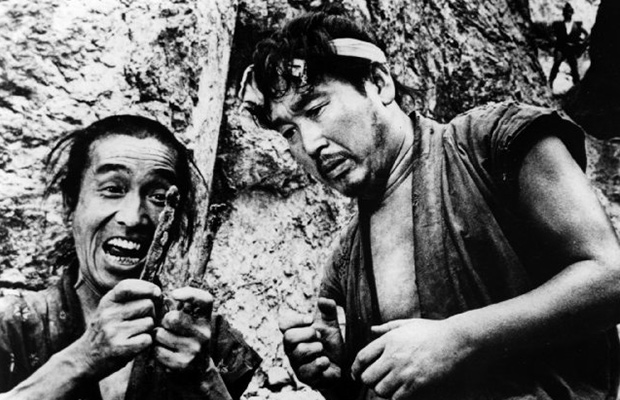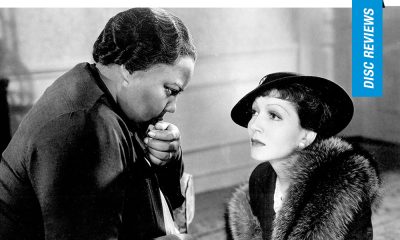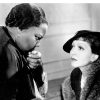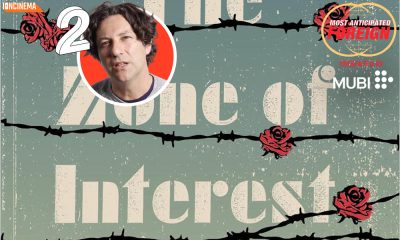Disc Reviews
Criterion Collection: The Hidden Fortress | Blu-ray Review
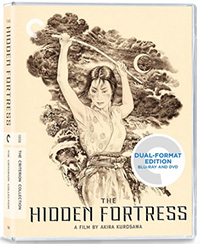 Criterion re-releases Akira Kurosawa’s 1958 adventure The Hidden Fortress for a ravishing blu-ray update this month, following hot on the heels of a similar refurbishing for Throne of Blood (1957). Long hailed as a “primary” influence on George Lucas’ Star Wars, there are indeed notable structural similarities, but they’re quite superficial, as those attracted to the title based on this tidbit alone should take note. An entertaining adventure comedy that utilized widescreen technology to breathtaking effect (and represents Kurosawa’s first time using Toho Scope), it’s an impressively structured endeavor on its own, and was actually the first substantial hit for Kurosawa since 1954’s Seven Samurai.
Criterion re-releases Akira Kurosawa’s 1958 adventure The Hidden Fortress for a ravishing blu-ray update this month, following hot on the heels of a similar refurbishing for Throne of Blood (1957). Long hailed as a “primary” influence on George Lucas’ Star Wars, there are indeed notable structural similarities, but they’re quite superficial, as those attracted to the title based on this tidbit alone should take note. An entertaining adventure comedy that utilized widescreen technology to breathtaking effect (and represents Kurosawa’s first time using Toho Scope), it’s an impressively structured endeavor on its own, and was actually the first substantial hit for Kurosawa since 1954’s Seven Samurai.
At its core a re-dressed version of The Prince and the Pauper, two peasants in war torn feudal Japan, Tahei (Minoru Chiaki) and Matakishi (Kamatari Fujiwara) escape as prisoners of war and attempt to make their way back home to their own province. The only trouble is, the direct border is tightly guarded by the enemy, so they must cross over a less guarded border to circumvent this predicament. On their journey, they run into General Rokurota Makabe (Toshiro Mifune) and divulge their plans, which Rokurota deems ingenious, as he has been looking for a way to secretly transport PrincessYuki (Misa Uehara), of the defeated Akizuki clan, into safety. Convincing the bumbling peasants to help him escort large quantities of Akizuki gold that’s been hidden in the firewood he’s transporting, Rokurota waits to rendezvous with the princess at a hidden fortress. Unable to conceal her class status, the outspoken and fiery princess is forced to pretend to be a mute, even to their lower class companions accompanying them, who clearly are looking out for their own survival.
Disc Review
Nearly every frame of The Hidden Fortress is gorgeously composed and Kurosawa shows a definite mastery over the widescreen format. There are a handful of scenes that look completely stunning, including a spear duel and a horse chase featuring a nimbly vicious Mifune. While being advertised as a major influence on Star Wars, an extra featuring the 2001 interview with George Lucas is a highlight, confirming that he mainly borrowed the perspective that Kurosawa used, that of the film’s two lowliest characters (embodied by C3PO and R2D2 for Lucas). How Kurosawa deftly transitions with swiping frames from scene to scene also seems something Lucas honed in on. Beyond this, a documentary from 2003 from Toho Masterworks series Akira Kurosawa: It Is Wonderful to Create highlights Kurosawa’s method, a filmmaker that wasn’t at first cherished in Japan due to his more emotive, Western influenced cinema. Kurosawa was hugely influenced by John Ford, whom he also considered a close friend, and a telling quote opens the documentary, with Kurosawa stating, “A truly good film is interesting and easy to understand.” As Criterion continues to re-master their Kurosawa titles, this is certainly the best way to experience what is perhaps Kurosawa’s most accessible film.
Final Thoughts
While it influenced George Lucas, he doesn’t credit The Hidden Fortress as his favorite Kurosawa film. Likewise, while a financial success, the film was dismissed as fluff, a comedically inclined film that didn’t live up to some of Kurosawa’s more serious efforts, and apparently Kurosawa crafted the film to be a commercial success as a way to repay Toho Studios for trusting him with less bankable material in the past.
Taken within the context which it was made, the film stands as an extraordinary achievement of Kurosawa’s prowess as a filmmaker, and time has only granted it a sort of lyricism that wasn’t permitted upon release. Fast paced and droll, Chiaki and Fujiwara own the film as the bumbling fools, their dawdling a direct juxtaposition of the gruff upper class citizens played by the always watchable Mifune and newcomer Misa Uehara. In particular, the princess, as played by Uehara, is an arresting character, a powerful female figure so unable to adhere to conventional, passable female customs that she has to assume the stance of a mute creature, and even goes so far as to save a sex worker during their journey to safety. Raised as a boy by a father that wanted the son, her existence as a dominating female has familiar origins—the female schooled in the ways of man, a straightforward historical example of the crippling way in which women are nurtured to be passive and weak. Uehara, whose striking makeup and costume was apparently styled with Elizabeth Taylor in mind, is as equal a draw as Kurosawa’s muse, Mifune.
For those unfamiliar with the brilliance of Kurosawa, The Hidden Fortress is a definitive entrance into his oeuvre, and while he may have been influence by Ford, one can see the major influence this title has had on filmmakers for generations to come, from George Lucas to Sergio Leone.
Film: ★★★★/☆☆☆☆☆
Disc: ★★★★/☆☆☆☆☆
Los Angeles based Nicholas Bell is IONCINEMA.com's Chief Film Critic and covers film festivals such as Sundance, Berlin, Cannes and TIFF. He is part of the critic groups on Rotten Tomatoes, The Los Angeles Film Critics Association (LAFCA), the Online Film Critics Society (OFCS) and GALECA. His top 3 for 2021: France (Bruno Dumont), Passing (Rebecca Hall) and Nightmare Alley (Guillermo Del Toro). He was a jury member at the 2019 Cleveland International Film Festival.



